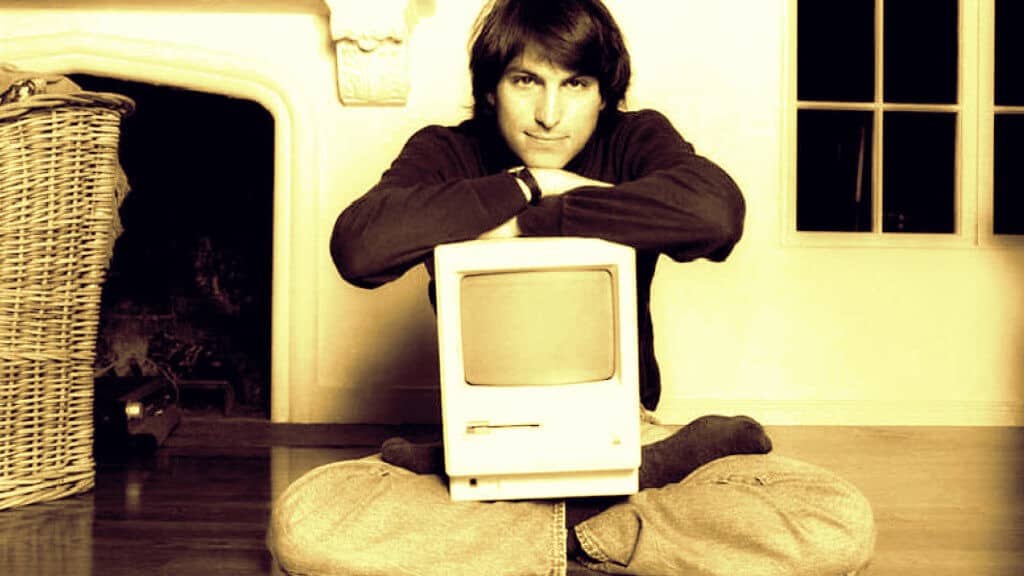The influence of Zen Buddhism on Steve Jobs, Apple’s co-founder, is not just a fascinating aspect of his personal life but also left an indelible mark on his professional approach and Apple’s products. Jobs’ relationship with Zen began in his youth, forging a path of spiritual exploration that deeply influenced his worldview and, by extension, Apple’s vision and products.
The Fusion of Zen in Apple’s Innovation
Steve Jobs’ Spiritual Influence
In his quest for meaning and self-discovery, Jobs embarked on a journey to India. This trip was more than an adventure; it was an immersion in a culture and spirituality that would forever shape him. Upon returning, Jobs connected with Zen Buddhism, a tradition rooted in Japan, leading to a profound friendship with Kobun Chino Otogawa, a Zen master of Japanese descent.
The Impact of Zen on Apple’s Design Philosophy
Zen philosophy, with its emphasis on simplicity, clarity, and depth, is mirrored in the aesthetics of Apple’s products.
This influence is apparent in Jobs’ preference for minimalist, functional, and elegant designs. Jobs’ famous quote, “Less is more,” encapsulates this philosophy and is evident in every Apple device created under his leadership.
Kobun Chino Otogawa: Steve Jobs’ Spiritual Mentor
Kobun Chino Otogawa was not just a spiritual mentor for Jobs but also a close friend and advisor. Their relationship went beyond professional bounds; Kobun even officiated Jobs’ wedding. This personal and spiritual bond provided Jobs with a unique perspective that influenced his personal and professional decisions.
Zen Practice and Jobs’ Business Vision
The practice of Zen meditation and its associated philosophy played a crucial role in shaping Jobs’ approach to life and business.
The ability to be present, focused, and mindful influenced his approach to leadership and innovation, enabling him to make bold and visionary decisions.
Jobs’ famous 2005 Stanford commencement speech offers a glimpse into how his understanding of Zen influenced his life philosophy. His reflection on death and the importance of following one’s heart directly echoes Zen teachings on impermanence and the pursuit of personal authenticity.
NeXT: An Example of Zen in Business Practice
When Jobs was ousted from Apple, he founded NeXT, appointing Kobun as the official “spiritual advisor.” This decision symbolizes the depth of Zen’s influence on his business approach. NeXT was eventually acquired by Apple, marking Jobs’ “second act” in the company he co-founded.
The integration of Zen into Steve Jobs’ life and work is a testament to how spirituality can influence and enrich technological innovation and business leadership. This fusion of spirituality and technology not only defined Jobs’ career but also left an indelible mark on the tech industry.
The story of Steve Jobs and his relationship with Zen Buddhism is a compelling example of how spiritual pursuit can intertwine with the material and technological world to create something truly extraordinary. The influence of Zen on Jobs, and by extension, on Apple, is a reminder that innovation is not just about technology but also the vision and philosophy behind it.
Zen Philosophy
Zen is a philosophical and spiritual tradition that originated in India, flourished in China, and reached its full expression in Japan. At its core, Zen invites a practice of serene and deep meditation, guiding you toward an understanding beyond the ordinary, where reality is revealed in its purest and most transcendental form.






